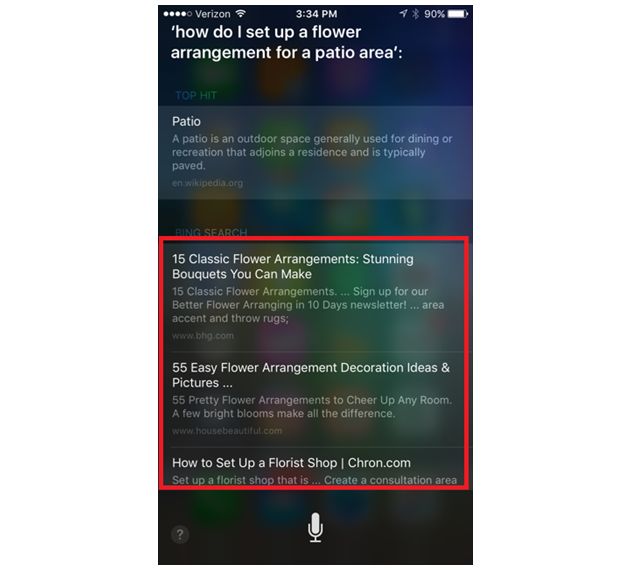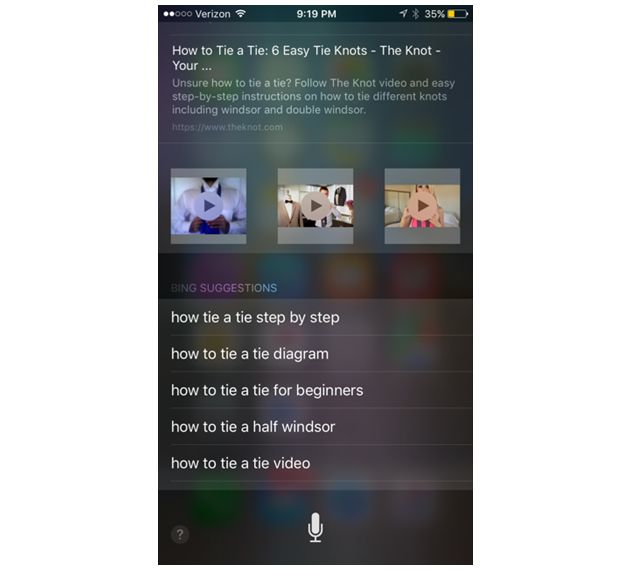With all the talk about the future of marketing, we marketers forget about the changes happening right now, right in front of us. Voice search is one of those phenomena, and it's affecting search results as you read.
And it's a trend that marketers can easily capitalize on with the right optimization techniques.
How important is voice search optimization today? Some 40% of adults now use voice search once per day, according to comScore, and Google voice search queries were up 35 fold in 2016 from 2008 levels, according to Mary Meeker's 2016 Internet Trends report.
In short, it's time to optimize your website for voice search.
Fortunately, doing so is not rocket science. You can have your website ranking for certain phrases within a few weeks, if you start using the following four strategies today.
1. Questions Over Keywords
Sure, keywords are vital to search engine optimization (SEO). And, yes, that still applies when we talk about voice searches. But voice searches are largely about answering questions, not about focusing on individual keywords.
If you're trying to optimize a website for a flower shop, you wouldn't focus on short-tail keywords like "fresh flowers" or "[insert city] flower shops." Instead, you'd aim to address a consumer's specific question, such as "how to setup a flower arrangement for a patio area?"
This favoring of long-tail keywords is the prevailing trend in SEO, in general, but it applies most aptly to voice search.
The easiest thing you can do to start addressing those sorts of questions is to add an FAQ page to your site. If you can answer a series of questions with "value," drawing on your industry expertise, Google's search bots will recognize these efforts and reward you with a prominent voice search result, as will other search engines. Like so...

If you're having trouble formulating a good set of consumer questions to address, don't be afraid to perform some outreach. Join forums and message boards, and use Quora to interact with consumers and fellow marketers alike. You can also reach out to your email list to identify which areas your customers need the most help in.
2. Local Search Optimization
Have you ever found yourself visiting a city for the first time and relying on your phone to tell you the best restaurants and places to visit? That is one of the largest applications of voice search today, and it's a growing trend.
Optimizing for voice search means optimizing for local SEO. Here are the two main areas of overlap between the two:
- Google My Business listing: Make sure your business address, phone number, and website are listed accurately.
- Reviews: You want to collect lots of positive Google reviews. When somebody asks Siri for "best Thai restaurants in LA," they'll be shown places with the most reviews first. (Study after study comes to the same conclusion: Consumers use positive reviews to inform their purchasing decisions.)
3. Mobile-Responsiveness
It goes without saying that most voice searches are performed on some sort of mobile device. So you'd better make sure that your site is good to go on mobile.
Moreover, Google has announced mobile-first indexing, which means that it doesn't really matter how responsive your desktop site is; if your mobile site is a dud, your search ranking will be a dud, period.
Creating a positive mobile experience means your content must be digestible to the user. Long paragraphs should be reconsidered in favor of short, 2-3 sentence tidbits.
Think about your own experience reading content on a mobile device. How many times have you given up on an article for no other reason than it was too long and clunky to read?
Content for a mobile site should be succinct and concise, and it should clearly answer the question you're trying to rank for in voice search. If it's too roundabout, if it fails to directly address the question, and it's written like a 500-page novel, don't expect to be rewarded in voice search results.
4. Video Content Creation
Finally, a great way to sneak into voice search rankings is to post a YouTube video that answers the specific topic you have in mind.
It turns out that YouTube videos do show up in voice search results.
Here's an example for "how to tie a tie":

We've known for a while that YouTube videos can outrank static Web pages in normal SERPs, but this is apparently true for voice search as well.
If you're camera-shy, fear not. You don't have to go in front of the camera if you don't want to. Instead, you can answer a question using graphics and voiceover: in short, explainer videos.
The Main Point
Poring through all the statistics, data, and case studies about voice search can be headache-inducing; so, rather than overthinking your strategy, which can lead you to crash and burn, try to break it down into the basic principle of answering your consumers' questions.
Of course, figuring out those questions is where the grunt work comes in (keyword research). But once you've decided on a set of questions, created content with actionable solutions, and optimized it for voice search and local SEO, you might well be surprised to see how much your hard work pays off!




